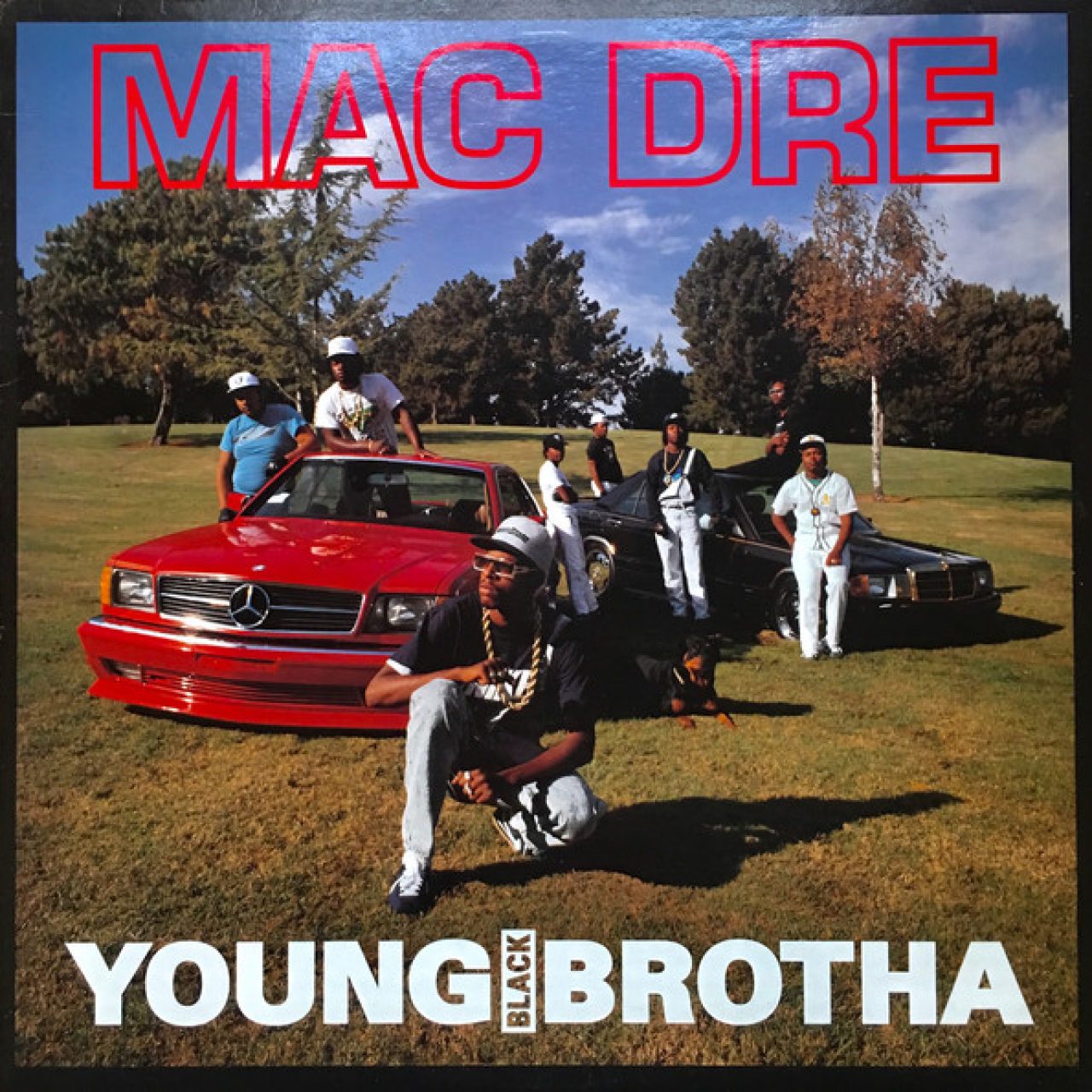Mac Dre
Young Black Brotha: “Too Hard for the Fuckin’ Radio” (Strictly Business Records)
On most of the internet, a 1989 date is given for Mac Dre’s EP-length cassette debut Young Black Brotha, produced by and recorded for Khayree’s Strictly Business Records. However, Discogs lists a 1990 vinyl test pressing. Perhaps the cassette — which doesn’t have a publishing or copyright date — dropped in the former year, and the vinyl was prepped for regional DJ action after it made waves among the Bay’s car freaks and club kids. Or maybe the 1989 date is simply wrong. Like so much early Bay rap history, we may never factually determine when it hit the neighborhood and/or the record shops.
Regardless, Mac Dre’s “Too Hard for the Fuckin’ Radio” is the clear standout on this four-track project, with a sing-song chorus that serves as both provocation and invitation. The teenage musician was clearly inspired by Oakland’s Too Short and Vallejo’s The Mac, the latter whose name inspired Andre Hicks “Mac” persona. (The Mac was murdered in 1991.) Like those local greats, he floats between flamboyance (“I sport Nike shoes”) and blue-collar business hustle. He’s not a “pimp daddy” or a gangsta criminal, but he speaks in street codes, and the throbbing keyboard funk pushes forward his flawlessly smooth flow. It would be several years — and a years-long stint in prison — before he evolved into the uninhibited Thizz jester. But the blueprint of the Mac Dre legend was already present.
Read more: The 100 Best Rap Singles of 1990
Originally published on criticalminded.com.
Humthrush.com will always be free to read and enjoy. If you like my work, leave a tip at Ko-fi.com/humthrush.


